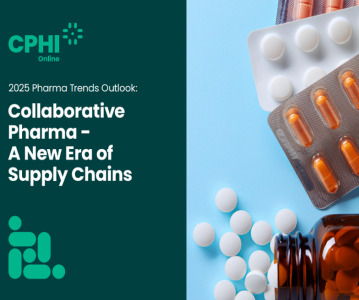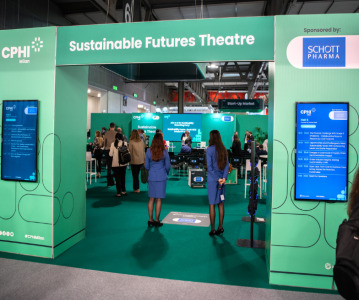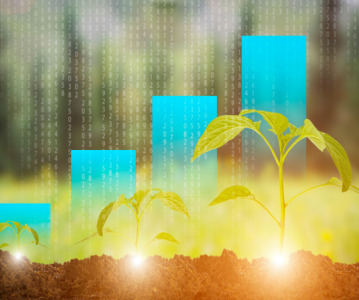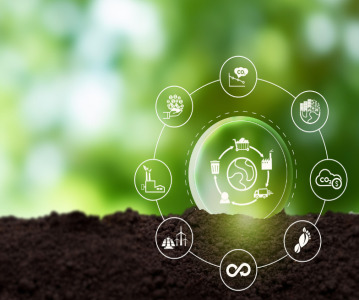A Circular Economy and it's Importance to National & European Economies

Neutroplast is a plastic packaging producer whose main focus is supplying the pharmaceutical industry. The company has been present in the market for over twenty-five years and is a prominent player in the Portuguese pharmaceutical industry landscape. Over time, it has constantly strived to develop a sector that is vital for our society in partnership with pharmaceutical companies, universities, research hubs, industry associations, and other stakeholders.
This article outlines ongoing projects in the field of sustainability, goals to be achieved, and deadlines
For Neutroplast, the circular economy is nothing new. As a plastics processor, we are very aware of the role these products play in the global environmental equilibrium. So the European Commission Directive on Plastic and the way it approaches the use of this raw material came as no surprise, both because there is a need to think about the use of plastic in a new way, and because of the awareness that plastic is an integral material in the economy and in our daily lives.
Projects Driving Sustainability in Pharmaceutical Packaging
In the course of our business, we were already aware of a pressing need to recreate plastic processing industries. Therefore, we started a silent revolution in the form of a wide range of initiatives to reduce our environmental footprint:
We have made considerable investments, such as photovoltaic panels for self-consumption or the automation of internal production processes, and these have brought considerable improvements to the environmental performance of our business, but also in multiple smaller initiatives, which cut across all processes and produced significant results.
There was a focus on the company's consumption of plastic and plastic cups and cutlery were removed; now these utensils are made of ceramic and metal. Plastic bottles were also removed with the installation of new drinking fountains and glass and aluminum bottles were gifted to employees. On the other hand, the coffee drunk on the premises is now provided free by the company and is made without using capsules of any kind.
Electricity consumption was also completely overhauled: we installed LED lighting at all locations, where possible, and now carry out close monitoring of air flows, which on the one hand allows for a smaller impact on the electricity used for compressed air generation and, on the other hand, waste reduction and reuse of materials has reached levels of excellence through SMED procedures, standardisation of tools, and protocols for Organization, Order, and Cleaning.
But Neutroplast believes that this path cannot be walked alone. We accept our role as a leader in ecological industrial associations; we actively participated in Operation Clean Sweep, our partners include Zero Plastic Oceans and SmartWaste Portugal, and we are also subject to analysis in the ECOVADIS index. Collaboration with these key organizations in the new configuration of environmental protection is in fact proof positive of capacity generated by joint initiatives for defending the environment and establishing the Circular Economy.
Future Projects
But the future is even more ambitious, since the goal is to achieve a production and business process with 0% waste and still remove plastic from the market, through processes for the re-use of materials, sticking to our commitments to produce high-quality raw materials needed to supply the pharmaceutical industry.
Combining the advantages of plastic with the urgent need to reformulate the use thereof is only possible through a “circular” approach, in which this very efficient raw material that it is present in almost all the products we use begins to be reused extensively, through processes that include plastic producers, recyclers, retailers, and consumers. Therefore, innovation must be the fundamental focus behind acheiving this goal, involving the widespread reuse of plastic and a change in consumer habits. Only then will the sustainability of plastics improve, opening an opportunity for competitiveness and job creation in a key industry in the European economy.
Efficiency thus moves to a position of ecological design, where improving the sustainability of our production, through gains in efficiency, helps us attain the desired level of ecological impact. The introduction of many pieces of equipment, the change in production systems, and the change in environmental behaviour are therefore a manifestation of how incremental improvements in our actions have an impact on both us and the environment, achieving higher product quality, affirming Neutroplast's place as a trailblazer of the both Portuguese and international pharmaceutical industries.
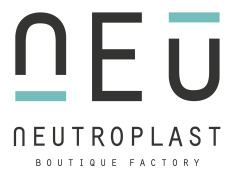
Related News
-
News How GLP-1 agonists are reshaping drug delivery innovations
GLP-1 agonist drug products like Ozempic, Wegovy, and Mounjaro have taken the healthcare industry by storm in recent years. Originally conceived as treatment for Type 2 diabetes, the weight-loss effects of these products have taken on unprecedented int... -
News NextPharma Achieves Carbon Neutrality for Scope 1 and 2 Emissions
NextPharma has confirmed that it will achieve carbon neutrality for its Scope 1 and Scope 2 emissions starting January 1, 2025, marking a significant milestone in its sustainability journey. -
News 2025 Pharma Trends Outlook: Collaborative Pharma – A New Era of Supply Chains
A new year, a new Pharma Trends Outlook report! The 2025 Pharma Trends Outlook report examines key changes expected in the pharmaceutical industry for the coming year, particularly in regards to the supply chain. -
News Closing 2024 with Editors' picks of top articles from the past year
Coming to the end of 2024 and it’s certainly been a busy year, for CPHI and for the rest of the pharmaceutical and healthcare industry. Topics of conversation throughout the last 12 months have been varied, touching on the technical, to the polit... -
News SCHOTT Pharma’s sustainable journey with CPHI
Sustainability is of paramount importance in the pharmaceutical industry. See how a recent partnership between CPHI and SCHOTT Pharma has helped to highlight and accelerate their sustainability journey to reach global goals. -
News Day in the Life of a Green Chief Financial Officer
Our latest look into the daily lives of the people behind the pharma community brings us to meet Juan Jose Piedra Galan, Global Financial Planning & Analysis Manager for Galderma, otherwise known as 'The Green CFO'. -
News CPHI Milan 2024 - From the Floor
Milan and CPHI welcome you to 2024 CPHI Milan! As we celebrate the 35th edition of our flagship CPHI show, editors Vivian Xie and Lucy Chard bring you the latest from the show floor, conference sessions, and innovative solutions from all exhibitors, at... -
News CPHI Podcast Series: analysing supplier audits with the PSCI
This episode of the CPHI Podcast Series, hosted by Digital Editor Lucy Chard, goes through the results from the recent audits from the PSCI conducted on suppliers across the pharmaceutical industry, looking into ESG outcomes.
Recently Visited
Position your company at the heart of the global Pharma industry with a CPHI Online membership
-
Your products and solutions visible to thousands of visitors within the largest Pharma marketplace
-
Generate high-quality, engaged leads for your business, all year round
-
Promote your business as the industry’s thought-leader by hosting your reports, brochures and videos within your profile
-
Your company’s profile boosted at all participating CPHI events
-
An easy-to-use platform with a detailed dashboard showing your leads and performance


